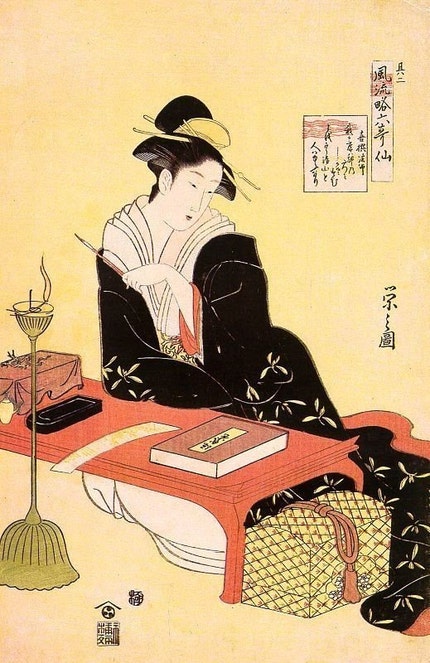 by Haruki Murakami
by Haruki MurakamiThis is the story of a man who’s wife leaves him and his efforts to get her back. At the beginning of the novel Toru or Mr. Wind-up Bird, has quit his job at a law firm and putters around the house cooking and looking for their lost cat while his wife supports them. One day his wife goes to work and simply doesn’t come back. Because this is Murakami it does not involve any navel gazing about the what could have gone wrong in the marriage or any action by the man to go out and get a job to impress her and win her back. Instead Toru drifts along letting fate take him where it will and in this case it takes him on some very interesting adventures. In his wife’s absence Toru meets Malta Kano, a psychic helping him look for his lost cat and her sister, Creta Kano, a prostitute of the mind. He crosses paths with his evil brother in law, Noboru a pragmatic politician who defiled Creta Kano years ago and may have something to do with his wife’s absence. He meets Lt. Mamiya who tells him about war atrocities in Outer Mongolia and Manchuria. He runs into a mother and son team that he calls Nutmeg and Cinnamon and joins up with them to psychically heal wealthy women. Toru also makes friends with a teenage girl down the street, May Kasahara , and spends quite a bit of time sitting in a dry well where he has some unusual experiences.
What I really love about Murakami is his writing. This is how he described a smile: “The hint of a smile played about his lips, as if he had just heard a joke and was smiling now in the most natural way. Nor had the joke been a vulgar one: it was the kind of elegant pleasantry that the minister of foreign affairs might have told the crown prince at a garden party a generation ago, causing the surrounding listeners to titter in delight.” Most authors would just call it a smile but Murakami draws a vivid picture. I also love the crazy characters and the way you never know exactly what is going to happen because reality as we know it does not apply in a Murakami novel (the New York Times review called the novel Kafkaesque). I have read some reviews that said they didn’t like the ambiguous ending but I like to be left guessing about what happens after the novel ends. I thoroughly enjoyed the book. While I like Kafka on the Shore better because I liked the main character more, this was a great read and I will certainly continue to read Murakami.
What I really love about Murakami is his writing. This is how he described a smile: “The hint of a smile played about his lips, as if he had just heard a joke and was smiling now in the most natural way. Nor had the joke been a vulgar one: it was the kind of elegant pleasantry that the minister of foreign affairs might have told the crown prince at a garden party a generation ago, causing the surrounding listeners to titter in delight.” Most authors would just call it a smile but Murakami draws a vivid picture. I also love the crazy characters and the way you never know exactly what is going to happen because reality as we know it does not apply in a Murakami novel (the New York Times review called the novel Kafkaesque). I have read some reviews that said they didn’t like the ambiguous ending but I like to be left guessing about what happens after the novel ends. I thoroughly enjoyed the book. While I like Kafka on the Shore better because I liked the main character more, this was a great read and I will certainly continue to read Murakami.



















